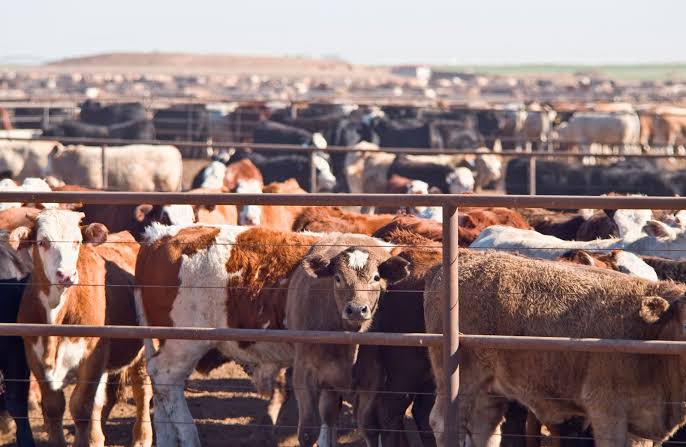President Bola Tinubu has taken a significant step toward bolstering the livestock sector in Nigeria by approving the rehabilitation of a proposed building for the Ministry of Livestock Development. This announcement was made by the Minister of the Federal Capital Territory (FCT), Nyesom Wike, during an inspection of the building in question, which is located in the Central Business District of Abuja. The building previously housed the Ministry of Agriculture and Food Security, but it is now set to undergo substantial renovations to serve as the new headquarters for the Ministry of Livestock Development.
This move is part of the government’s broader effort to enhance the livestock industry, which plays a crucial role in Nigeria’s agricultural economy. The creation of a dedicated ministry for livestock is a clear indication of the government’s recognition of the sector’s importance in terms of food security, job creation, and economic diversification. The Ministry of Livestock Development is expected to spearhead initiatives that will address challenges facing the livestock sector, including modernizing practices, improving infrastructure, and ensuring sustainable growth.
 While inspecting the building, Wike noted that President Tinubu had personally directed the rehabilitation of the former Ministry of Agriculture and Food Security building to accommodate the newly established ministry. This demonstrates the administration’s commitment to swiftly implementing its plans to revitalize the livestock industry. However, Wike did not provide specific details regarding the cost of the rehabilitation project, stating that no contractor has been selected yet to carry out the work. This leaves room for further developments as the project moves forward and contracts are awarded.
While inspecting the building, Wike noted that President Tinubu had personally directed the rehabilitation of the former Ministry of Agriculture and Food Security building to accommodate the newly established ministry. This demonstrates the administration’s commitment to swiftly implementing its plans to revitalize the livestock industry. However, Wike did not provide specific details regarding the cost of the rehabilitation project, stating that no contractor has been selected yet to carry out the work. This leaves room for further developments as the project moves forward and contracts are awarded.
The decision to repurpose an existing building instead of constructing a new one could be seen as a practical and cost-effective approach by the government. It ensures that resources are utilized efficiently while also allowing for quicker implementation of the ministry’s plans. The building, once completed, will likely serve as the operational hub for key livestock-related initiatives, policies, and programs aimed at improving livestock management, animal health, and productivity.
The establishment of the Ministry of Livestock Development is part of President Tinubu’s broader agricultural agenda, which seeks to reform and modernize Nigeria’s agricultural sector. By focusing on specific sub-sectors like livestock, the government is positioning itself to address long-standing challenges such as poor livestock infrastructure, inadequate veterinary services, and the need for more organized livestock markets. This also ties into the government’s commitment to diversifying the economy away from oil dependency by promoting agricultural development as a key driver of economic growth.
Moreover, the livestock sector has immense potential for job creation, especially in rural areas where a significant portion of Nigeria’s population relies on livestock farming for their livelihoods. By investing in this sector, the government aims to not only boost food security but also provide employment opportunities and improve living standards for millions of Nigerians. The Ministry of Livestock Development is expected to introduce policies that will promote the adoption of modern farming techniques, improve animal breeding programs, and enhance disease control measures, all of which are essential for increasing productivity in the sector.
In addition, the rehabilitation of the building for the Ministry of Livestock Development reflects the government’s broader urban development goals, particularly in the Federal Capital Territory. As Abuja continues to grow and evolve as the nation’s capital, there is an increasing need for efficient use of space and resources. Revamping existing infrastructure like the former Ministry of Agriculture building aligns with the government’s urban planning efforts, ensuring that the city’s central business district remains functional and up-to-date.
Though details about the timeline for the rehabilitation or the cost involved have yet to be disclosed, the move has already generated significant interest. Stakeholders in the livestock sector, including farmers, veterinarians, and traders, will be eagerly awaiting the completion of the building and the commencement of the ministry’s operations. As the project progresses, more information about the contractors, budget, and expected impact of the ministry is likely to emerge.
Overall, President Tinubu’s approval of this project is seen as a forward-thinking step that promises to have long-term benefits for Nigeria’s agricultural landscape. The new Ministry of Livestock Development will serve as a key institution in driving innovation and growth within the livestock sector, ensuring that Nigeria remains competitive and self-sufficient in meeting the protein needs of its growing population. This development signals a positive shift toward the sustainable transformation of the livestock industry, and many are optimistic about the potential impact it will have on the nation’s agricultural and economic future.




